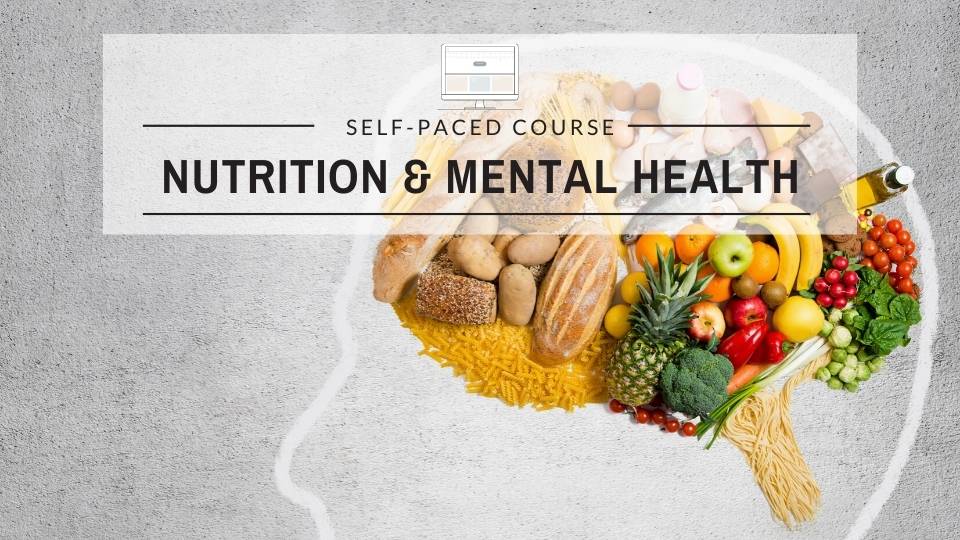There has been a stark rise in depressive and anxiety disorders globally along with the unfolding of the COVID-19 pandemic. There is a high need for mental health programs and supports, and increasing recognition for the role of nutrition in the prevention and treatment of depression, anxiety, and substance use disorders. Learn about the evidence connecting nutrition and mental health and think critically about ways to work collaboratively to increase awareness and build strategic partnerships for strengthening nutrition to support mental health.
Learning Outcomes:
Upon completion of this training, learners will be able to:
- Describe benefits of adequate nutrition for brain health.
- Recognize nutrients identified as important to the prevention and treatment or management of depression, anxiety, and substance use disorders.
- Identify foods important to people receiving treatment for anxiety, depression, and substance use disorders or who are at risk for these disorders.
- List ways to integrate nutrition and mental or behavioral health programs.
- Recommend strategies for strengthening the integration of nutrition and mental health services.
Format: Self-paced training (work at your own pace, use "save and exit" as needed).
Duration: 90 minutes
Arranged by: Allison Root, DrPH, MCHES, RDN
Authors: Allison Root, DrPH, MS, RD; Kaydi Williams, BS; Victoria Bravo, MPH. With input from: Carrie Langley, PhD, DNP, PMHNP-BC.
Target Audience: Public Health Professionals including community health workers, doctors, nurses, social workers, dietitians, and health educators.
Published: 7/2024
Disclosures: The planners, reviewers, and authors have no declared conflicts of interest.
CE Available:
Interprofessional Activities:
This activity was planned by and for the healthcare team, and learners will receive 1.5 Interprofessional Continuing Education (IPCE) credits for learning and change. The WRPHTC is jointly accredited by the Accreditation Council for Continuing Medical Education (ACCME), the Accreditation Council for Pharmacy Education (ACPE), and the American Nurses Credentialing Center (ANCC), to provide continuing education for the healthcare team through November 2025.

Credits apply to:
- Continuing Education Contact Hours for Certified Health Education Specialists (CHES): This program is designated for Certified Health Education Specialists (CHES®) and/or Master Certified Health Education Specialists (MCHES®) to receive up to 1.5 total Category I continuing education contact hours (1.0 Advanced level. 1.5 continuing competency). WRPHTC provider number 99036.
- Continuing Nursing Education (CNE): 1.5 credits
- AMA PRA Category 1 Credits: 1.5 credits
- Continuing Professional Education Units for Dietitians (CPEUs): As a Jointly Accredited Organization, the WRPHTC is approved to offer continuing professional education units by the Commission on Dietetic Registration. The WRPHTC designates this activity for 1.5 contact hours for dietitians. Dietitians should enter activities as type 102 on their Activity Log.

The WRPHTC is jointly accredited by the Accreditation Council for Continuing Medical Education (ACCME), the Accreditation Council for Pharmacy Education (ACPE), and the American Nurses Credentialing Center (ANCC), to provide continuing education for the healthcare team through November 2025.

The WRPHTC is a Designated Multiple Event Provider of Continuing Education Contact Hours (CECH) for Certified Health Education Specialists (CHES) through the National Commission for Health Education Credentialing, Inc.
